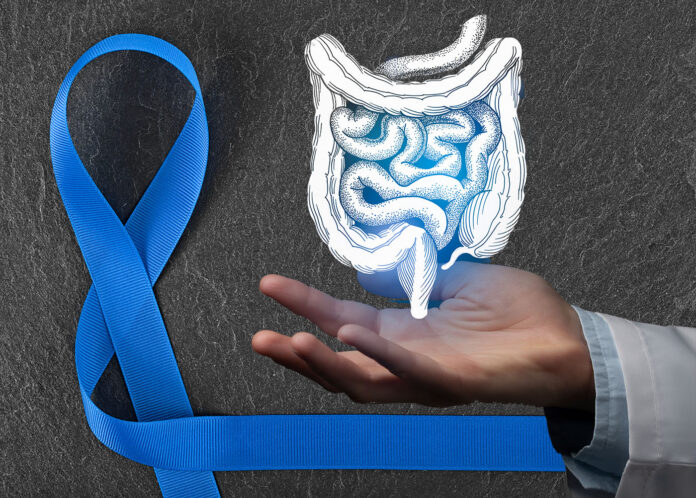Bowel cancer is one of the most common forms of cancer in the United States and is also one of the most preventable. Bowel cancer and many other types disproportionately affect the African American community. Below, we learn more about colorectal cancer, including symptoms and risk factors, as well as why Black people experience worse outcomes.
What is Bowel Cancer?
Bowel cancer starts in the rectum or colon. It often begins as polyps that, when caught early, can be removed before advancing to more serious forms of the disease that can be life-threatening. According to the Colorectal Cancer Alliance, over 150,000 Americans are diagnosed with colon or rectal cancer each year. Over 50,000 will die from it. However, with regular screening and removal of polyps and abnormal cells, bowel cancer is often preventable.
Symptoms of Colorectal Cancer
Symptoms of bowel cancer are often mistaken for many other, more common and less serious conditions. For example, many people experience diarrhea, constipation, and bloating from time to time. However, if these symptoms are persistent or come on suddenly, you should report this change to your healthcare provider.
Severe symptoms include changes in bowel habits, blood in the stool, abdominal pain, cramps, fullness, weight loss, and fatigue.
Risk Factors for Bowel Cancer
There are many risk factors for bowel cancer, some of which you can adjust to lower your risk and improve your overall health in the process. It’s important to discuss all risk factors with your healthcare provider so you can work with them on a plan for appropriate screening for colorectal cancer and other health conditions you may be at risk for, such as hypertension, diabetes, and other forms of cancer.
- Age: More and more people aged 20-45 are developing polyps that may lead to bowel cancer. However, it is still most common in those over 50.
- Diet: A diet high in red meat, especially when cooked at high temperatures, can increase your risk of bowel cancer. Low vitamin D levels may also contribute. A healthy diet can decrease risk considerably, especially when used to maintain a healthy weight.
- Tobacco and Alcohol Use: Both smoking and heavy, long-term drinking are linked to many types of cancer and chronic health conditions. Those who stop smoking can improve their overall health, better manage existing issues, and may help prevent others.
- Activity Level: Not being physically active can slow the bowels and contribute to cancer risk. You can reduce this risk by following the CDC’s exercise recommendations for adults.
- Weight: Being overweight or obese seems to affect men more than women. However, a healthy diet and staying active may help you maintain a healthy weight, improving your risk for bowel cancer and other health conditions.
- Colorectal Polyps: Having adenomas (polyps) removed during a previous colonoscopy increases the risk of developing additional ones that could become colon or rectal cancer in the future.
- Inflammatory Bowel Disease (IBD): IBD is not the same as Irritable Bowel Syndrome and instead leads to dysplasia, or abnormal cells in the lining of the bowels that may eventually become cancerous cells. Examples of IBD include ulcerative colitis and Chron’s Disease which affect the inner lining of the bowels.
- Family History: According to research, as many as one-third of those who develop colorectal cancer will have a close relative with it as well. It’s important to know the medical history of your parents, grandparents, and siblings.
- Ethnic Background: African American, American Indian, and Alaska Native people have the highest rates of colorectal cancer in the United States.
- History of Cancer: Having had some form of cancer in the past puts you at an increased risk of bowel cancer.
- Other Genetic Conditions: There are several other health conditions closely linked to bowel cancer, such as Lynch syndrome, familial adenomatous polyposis, and Peutz-Jeghers syndrome.
Diagnosing Colon or Rectal Cancer
Screening tests for bowel cancer are recommended starting at age 45. There are many tests available depending on your risk level, preferences, insurance coverage, and other several factors.
- Stool Tests: There are several types of stool tests that are used to detect blood, such as gFOBT (guaiac-based fecal occult blood test) and FIT (fecal immunochemical test). Another test, the FIT-DNA test, helps to detect altered DNA.
- Flexible Sigmoidoscopy: A flexible tube fitted with a light is used to check for polyps and other signs of cancer cells. It is limited to the rectum and the lower colon.
- Colonoscopy: This more intensive test checks the entire colon and is usually used as a follow-up when other tests are abnormal or done every ten years routinely. Polyps and some most common types of cancer cells can be removed using a flexible tube and specialized instruments.
- CT Colonography: Also known as a virtual colonoscopy, a CT colonography uses computer technology to view the entire colon, but does not offer the added benefit of removing any suspect polyps or cancerous cells should they be detected.
Bowel Cancer Treatment
Early-stage colon or rectal cancer is often treated by removing the affected polyps with a polypectomy. Larger polyps may require removing a small section of the colon as well through an endoscopic mucosal resection. If there are several polyps present or they cannot be removed through a standard colonoscopy, your treatment team may recommend laparoscopic surgery. When caught early, minimal treatment is needed.
Advanced Bowel Cancer Treatment
Treatment for advanced bowel cancer is more involved and can include everything from surgery to chemotherapy. Your treatment team will carefully consider your test results, risk factors, and more, to determine the best possible care.
- Surgery: Surgical treatments for advanced rectal cancer or colon cancer may include a partial colectomy (removal of part of the colon), an ostomy (changing the way stool leaves the body), or removal of the lymph nodes. If colorectal cancer is terminal, bowel surgery may be used to relieve symptoms, such as removing a blockage or treating excessive bleeding.
- Chemotherapy: Treating advanced bowel cancer with chemotherapy can help shrink cancer until it can be removed surgically or relieve symptoms of terminal colon or rectal cancer. It is often used alongside other cancer treatments like radiation therapy.
- Radiation Therapy: This therapy can be used like chemotherapy to shrink cancer until it can be removed surgically or to relieve symptoms.
- Targeted Drug Therapy: Based on the specific type of cancer cells present, drugs may be used to block their growth and even kill them, thereby forcing cancer into remission. It is typically used with other cancer treatments.
- Immunotherapy: Similar to targeted drug therapy, immunotherapy uses medications to target cancer cells. However, these drugs boost the body’s immune system to help it fight the cancer itself.
- Palliative Care: If colorectal cancer is severe and treatments are not effective, supportive care may help relieve symptoms. A treatment team can suggest ways to improve the quality and length of life for both the patient and their family.
African Americans and Bowel Cancer
More Black people will be diagnosed with bowel cancer than any other race in the United States every year. Death rates are also higher for those who have been diagnosed with colon or rectal cancer. What causes this and what can be done to correct it?
Colorectal Cancer Facts
African Americans are at high risk for bowel cancer and for several reasons, from genetic reasons to a lack of preventative care like routine screening tests. The American Society for Gastrointestinal Endoscopy offers more insight into the startling facts about colorectal cancer and Black people. Let’s look at a few of them.
- 1 in 41 Black men will die from colon or rectal cancer compared to 1 in 48 Black men. Comparatively, 1 in 44 Black women will die from it versus 1 in 53 White women.
- African Americans are more likely to develop polyps on the right side of the colon where they are harder to detect.
- Black people are more likely to be diagnosed more advanced bowel cancer when treatment options are limited.
- Black Americans are at higher risk for cancer of all types, and cancer is the second leading cause of death in the United States.
Factors Affecting the Black Population
The American Cancer Society has compiled recent statistics and is predicting how bowel cancer will affect the African American population through 2024 in their “Cancer Facts & Figures” report. This report is highly detailed, but the things you should know are:
- African American men are much more likely to refuse a colonoscopy and other preventative screening measures.
- Bowel cancer is more likely in those with a family history, causing an increased risk for relatives.
- Lifestyle choices that increase the risk for colorectal cancer, like diet and tobacco use, are higher in the Black population.
- Access to care due to lack of health insurance, transportation, or other resources is limited for many who are considered low-income.
- Co-existing health conditions, such as diabetes or high blood pressure, cause increased risk for bowel cancer and other cancers in general.
- Some states, such as those in the south with many more underserved African American neighborhoods, have higher rates of bowel cancer.
Preventing Bowel Cancer
Colorectal cancer has a survival rate of 90%, but this is only with early detection, so screening is key. For those of average risk of bowel cancer, the American Cancer Society recommends routine colon cancer screening starting at age 45. This was recently updated from the previous recommended age of 50. There are many types of screening tests, from stool-based tests to a CT colonography.
Those at high risk, including African Americans with additional risk factors, should begin screenings earlier and get them more often at the direction of their doctor.
Black Americans at High Risk for Bowel Cancer
Black Health Matters cares and is helping to make the African American community aware of their risk simply because of their ethnic background. Screening is the first step in preventing bowel cancer, and more African-Americans should be aware of their risk and screening recommendations. You should discuss any other possible risk factors, such as family history, with your healthcare provider and begin screening at age 45.








